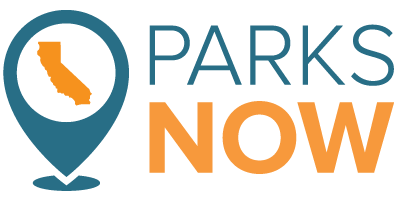The other day, my daughter asked if it was safe for us to have a family beach day again. She immediately frowned when I reminded her that even if a nearby beach were open, we would have nowhere to park because the lots are closed. “So, only people close enough to walk there, get to go to the beach?” she asked. “How is that fair?”
She’s only 11 years old, but she already understands something many adults don’t: That everyone needs access to outdoor spaces, but not everyone has it.
The COVID-19 crisis is reminding us how essential parks and beaches are for our health and well-being, as hundreds of Californians continue to seek relief in nature under shelter-in-place orders. Despite research that identifies outdoor activities to be low-risk when coupled with safety measures such as physical distancing and wearing face masks, officials trying to mitigate the spread of the virus responded to growing crowds by closing parking lots and limiting vehicular travel. While well intended, these measures largely benefit the privileged few who, as my daughter remarked, live close to a park or beach.
Even when they are able to get to a park or a beach, not all Californians feel safe or welcome once they get there. Facilities don’t always account for users who need wheelchair access or non-English language assistance. Black and brown people are still policed unfairly in these spaces. Interpretive signage, including social distancing information, may only be posted in English.
The pandemic is exposing–and exacerbating–the painful truth that many Californians of color have known all along: Parks are essential for our health, but access to safe, welcoming outdoor spaces remains deeply inequitable. The pandemic is also showing us that we should keep investing in our parks, even accelerating those investments, because of their power to build healthy and resilient communities.
With a massive budget deficit upon us, California policy makers face difficult choices as they figure out how to fund vital public services. But Californians need parks now, more than ever. In 2018, voters approved Proposition 68, which allocates $725 million to fund local park development, prioritizing investments in communities of color and low-income neighborhoods with little to no park infrastructure. (Here’s a video about Prop 68 and how RLF and its partners worked to advance funding for equitable parks access.)
RLF and its partners have already seen initial progress in the implementation of Prop 68 funding, with State Parks awarding grants totaling $255 million for 62 projects across the state. And the state is fast-tracking another $395 million of these funds, because of obvious need and to help drive economic recovery. In addition, the state is committing $20 million to establish the Outdoor Equity Grants Program to “increase the ability of underserved and at-risk populations to participate in outdoor environmental educational experiences at state parks and other public lands.”
Now is the time to uphold the promise of equity-based funding for parks and natural resources, not in spite of the pandemic, but because of what we’ve learned from it. Expediting funding to advance equity in parks is essential in building healthy and resilient communities, not to mention its potential to create a talented, diverse workforce to build and maintain these spaces. Outdoor advocates, including many in the Parks Now coalition, have been working for decades to ensure equitable access to parks and outdoor spaces. We must support their leadership in working toward a future when every Californian is within a safe, 10-minute walk to a well-maintained park. The coalition has recently released a set of equity-based principles and recommendations—that keep safety and physical distancing in mind—for officials to consider as they begin reopening parks and implementing creative solutions that rethink our relationship with public lands and the environment. Everyone deserves access to a day at the beach and to find respite in our most beloved places in California. The pandemic may amplify this truth, but it will matter long after this crisis has passed.
Alfredo Gonzalez is RLF’s Southern California Director. He leads efforts across RLF programs to broaden and diversify the conservation constituency with a specific focus on actively engaging urban, Latino, underserved, and younger Californians. He can be reached at agonzalez@resourceslegacyfund.org.

